How Birds Benefit Flower Gardens
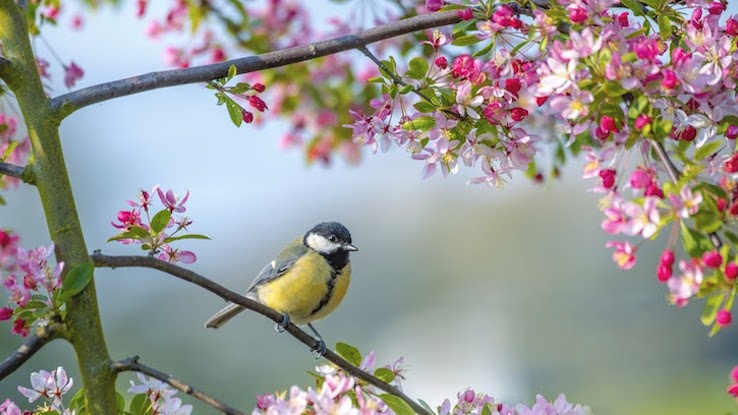
If you look outside on almost any day of the year, you'll likely see a variety of birds in your backyard. But with the exception of a few of the most common ones, you might not know what types of birds they are. Fortunately, it's easy to learn how to identify birds by paying attention to their appearance, behaviors and other characteristics and by familiarizing yourself with the types that live in your area.
Bird-watching is a hobby you can take up anywhere in the world where you're surrounded by nature. You might enjoy learning about your local birds so much that you start pursuing the hobby more seriously. But for now, learn about who's taking flight in your own yard.
Familiarize Yourself With Common Birds and Groups
Before you get started, it helps if you already know some basics about birds — considering that over 800 species of birds live in the United States and Canada alone. But not all birds live in the same regions, which is how you'll first start narrowing them down. Read books and visit websites about the birds in your area to familiarize yourself with the most common species. You may find that some are easy to spot right away, particularly if they have unique colors. Get yourself a field guide for reference.
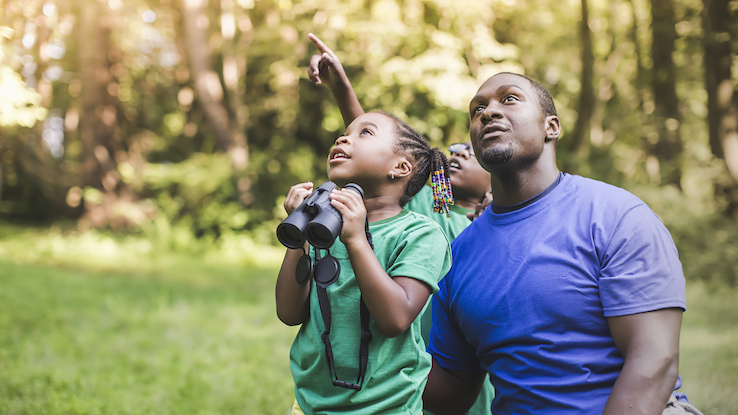
After that, learn about the different taxonomy groups. Most birds found in backyards fall into one of about 15 to 20 groups, which are divided up by categories like pigeons, woodpeckers, wrens, mockingbirds, finches and sparrows, among others. Figuring out which group a bird belongs to makes it much easier to identify.
When it comes to individual birds, it can be hard to figure out the family at first. Start by looking at its size and shape. Some experts recommend making yourself familiar with one specific bird that's common in your area so you can use it for comparison.
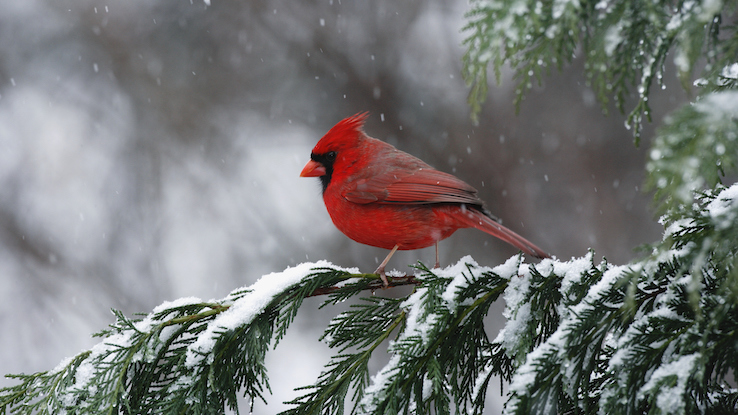
Cardinals, for example, may be common in your yard, and their red feathers make them easy to spot. Familiarize yourself with the cardinal's size and shape, and compare these features on the next bird you see. Maybe it's smaller or larger or has a rounder body and a longer tail. Notice how long the legs are, the shape of the eyes and the length and width of the tail. You'll also want to pay attention to the size and shape of the bill. Use binoculars if you find it hard to pick out some of these characteristics.
Check Out the Colors and Markings
A bird's color may be one of the first things you notice about it, and it can help you narrow down your choices. Keep in mind it may not always be accurate enough to help you definitively determine a bird; that's because some birds' feathers change colors with the seasons. In some cases, male and female birds of the same species are entirely different colors. The lighting may also highlight or hide a bird's true colors. Of course, most birds are not all one color. They may have special markings on various parts of their bodies, so again, use those binoculars to look for clues.
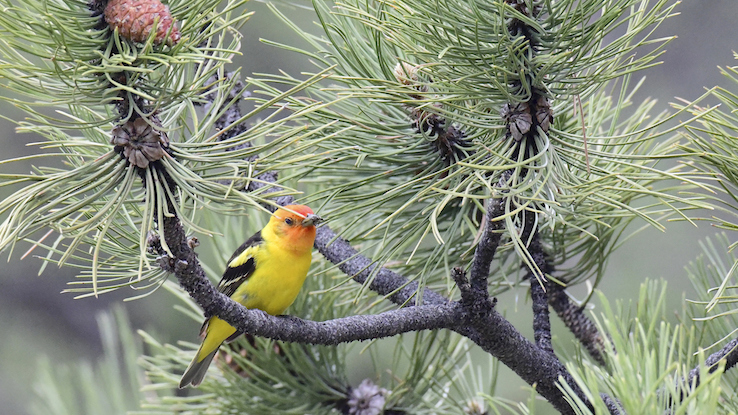
Watch the Bird's Behaviors and Flight Patterns
If the bird's appearance doesn't tell you much or only helps you narrow down your options a little bit, pay attention to its behaviors. Does it walk around on the ground or stay in the trees? Does it stay around other birds or spend its time alone? Does it look for food in the grass or in the tree bark?
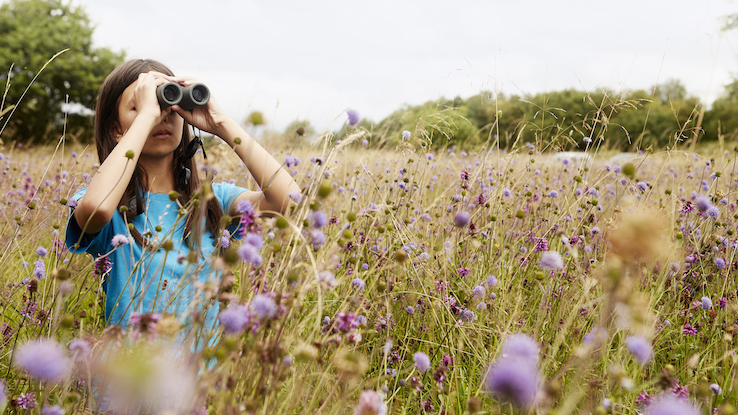
You'll also want to pay attention to the way it flies. Some birds fly alone, while others stick together with birds of the same species. Some fly high, while others move up and down, and some fly in a diagonal or zig-zag pattern. Of course, some are slow and some are fast. Just be ready to pay close attention when a bird takes flight, or it might fly to another yard where you'll lose sight of it.
Finally, note where the bird's habitat is. Whether it builds a nest in a forest, lives in a grassy area, lives in shrubs, lives near water or prefers an open area, this information can help guide you.
Listen to Its Voice or Song
It's also possible to identify a bird by listening to the sounds it makes. Sometimes it can be hard to figure out which song or voice goes with which bird. However, in the long run, it can make identifying birds anywhere much easier. Once you've learned how to identify birds by songs and calls, it's a skill that you can continue to use.
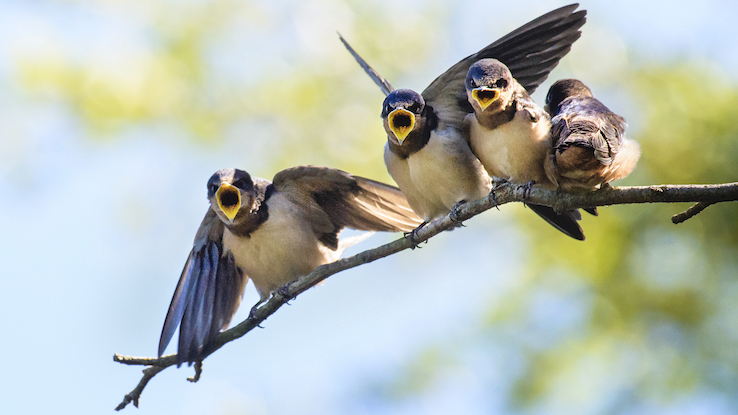
Start by figuring out how many notes a bird's song has and whether they rise or fall. It can help to take notes if you need to. If you can see the bird that's making the sounds, try to remember what it looks like — and if you can't see it, that's okay. You can search online by describing the song or use a service like the Audubon app to enter all the information you have about the bird and find results.
MORE FROM QUESTIONSANSWERED.NET
How Birds Benefit Flower Gardens
Source: https://www.questionsanswered.net/lifestyle/identify-birds-my-backyard?utm_content=params%3Ao%3D740012%26ad%3DdirN%26qo%3DserpIndex
Posted by: cappssomay1959.blogspot.com

0 Response to "How Birds Benefit Flower Gardens"
Post a Comment